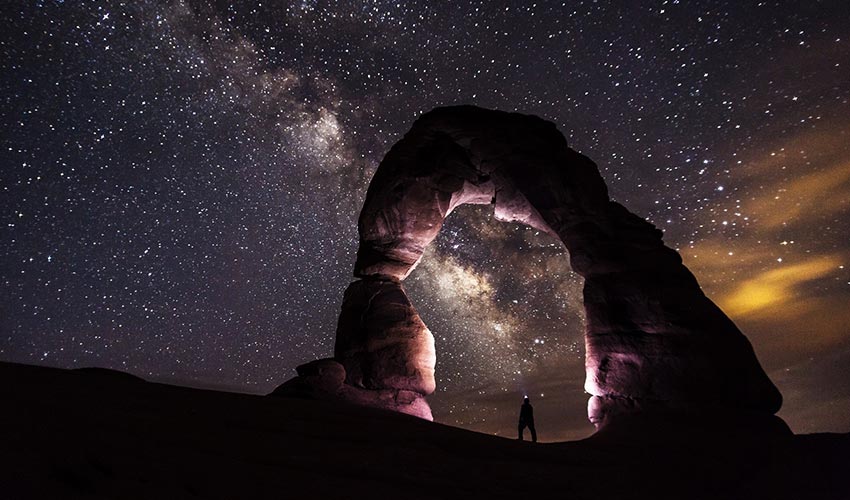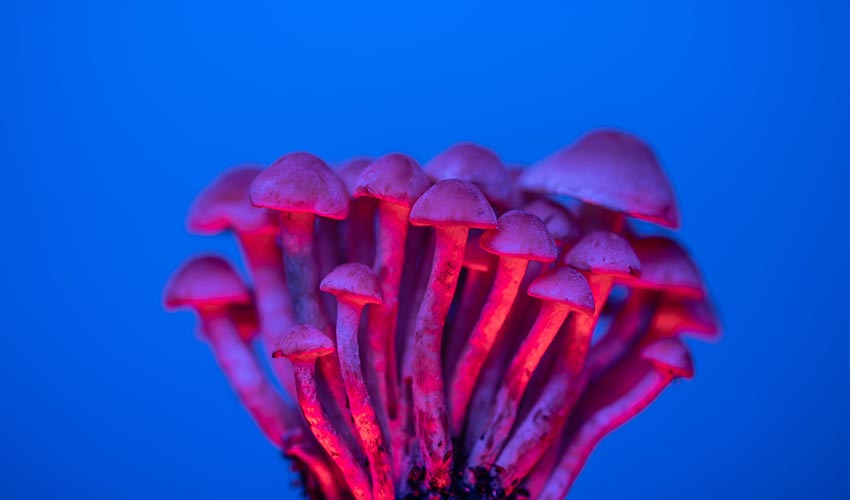The Profound Insight Offered by Psychedelics
Our brains aren't just thinking machines as they're also sneaky little filters that hold us back from fully experiencing reality. But fear not, for the wise Aldous Huxley suggests that psychedelics can flip the switch on these filters, inviting us to behold a higher reality. And guess what? Science has our back on this one too! Studies reveal that psychedelics and meditation can both whisk us away into the same state of mind, where our brains feel like a perfectly synchronised orchestra. Oh, and get this: even neurophysiological studies on super enlightened folks show that their brains are buzzing with connectivity during all sorts of mental tasks and even when they're catching some Zzz's. And hey, don't look now, but physics is nodding its head in agreement too! Apparently, all the stuff in the universe is instantaneously connected. So, whether you choose psychedelics or meditation, strap on your cosmic seatbelt, because it might just unlock the groovy interplay between you, your brain, and the entire universe. Time to get trippy!
Back in 1954, the ingenious Aldous Huxley put forth a mind-blowing idea known as the "Mind at Large." Essentially, he argued that psychedelic substances could act as sledgehammers, shattering the filters in our brains that restrict us from fully embracing the mind-boggling expanse of reality. These filters, Huxley suggested, reduced our perception of existence to a pitifully feeble trickle. But removing these mental shackles would allow us to tap into the highly sought-after higher reality, where we would be capable of perceiving every single cosmic occurrence taking place throughout the vast universe.

Now, hold your horses, because this concept might make you question the very foundations of your grey matter. Are our brains actually nothing more than sly filters and restricting valves that prevent us from reaching a more wondrous reality? Is it possible that we have been living in a state of dulled perception all this time? Surprisingly, both science and ancient contemplative practices seem to provide a resounding "yes" as an answer.
Let's check out the mind-altering realms of psychedelics first. Science has shown that substances like LSD and psilocybin, found in magic mushrooms, interact with specific receptors in our brains, altering the typical flow of information. They cunningly disrupt the usual choreography of neurons, unpredictably rewiring connections, and opening doors to unexplored corridors of consciousness. In other words, psychedelics kick the mind's filters to the curb, temporarily liberating us from the tethers of mundane perception. Suddenly, colours become more vibrant, music dances with unrivalled beauty, and the boundaries separating ourselves from the external world blur into an enchanting tapestry of unity.
Meditation, on the other hand, has been practiced for millennia by wise sages seeking enlightenment and truth. Neuroscience has begun to unlock the mysteries of this ancient practice, and findings align quite intriguingly with Huxley's audacious proposal. During deep states of meditation, certain regions of the brain associated with self-referential thoughts and ruminations show decreased activity, while areas responsible for perception and sensory processing become more synchronised. This implies that meditation acts as a potent weapon against the tyrannical filters of the mind, allowing us to immerse ourselves in a purer, undistorted reality.

But hold on a second, can we really trust these mind-expanding experiences? Could they be mere illusions, delusions induced by a chemical or psychological concoction? Well, modern physics surprisingly offers a glimmer of hope for the Mind at Large. Quantum theories propose that the fabric of reality itself is far more complex and interconnected than our limited human senses can comprehend. In this mind-bending worldview, everything in the universe is intertwined, constantly influencing and communicating with one another. If this is indeed the case, then Huxley's Mind at Large may not be as far-fetched as it initially seems.
So, buckle up, fellow truth-seekers, because the possibility of untethering ourselves from the all-too-familiar filters of our brains and basking in the magnificent expanse of the Mind at Large holds promise. Whether through the psychedelic rabbit hole or the peaceful depths of meditation, our quest for a more profound understanding of reality seems to converge with the audacious theory proposed by Aldous Huxley himself. In the end, perhaps the limitations of our brains are mere illusions waiting to be shattered, revealing a kaleidoscope of wonders beyond our wildest dreams.
Psychedelics & Ego Dissolution
In a 2021 study that involved functional MRI scans, scientists made a mind-blowing discovery about psychedelics and their effect on the brain. They found that LSD, in particular, has the power to break free from the usual limitations imposed by the brain's structural connectivity. This means that the connectivity in the brain, which is normally dictated by neural networks based on its structure, becomes untethered and less constrained when LSD is introduced.
The lead researcher, Andrea Luppi, described this decoupling of structural relationships as the brain being given the freedom to explore a vast array of functional connectivity patterns that go beyond what is dictated by its anatomy. In other words, LSD disables the filters that our minds use to process information, as famously proposed by Aldous Huxley in 1954. Luppi's study also revealed an intriguing link between LSD-induced experiences of losing one's sense of self, known as "ego dissolution," and a state of high global brain integration. When people feel this ego dissolution, they often describe a profound connection with the universe itself, as eloquently explained by Michael Pollan in his book on psychedelics, How to Change Your Mind.
Pollan wrote that the mystical experiences reported by individuals can be seen as the mind's response to the sudden disappearance of the boundaries between self and the world, which are normally enforced by the ego. It's no wonder then that during ego dissolution, people feel as if they are one with the universe. Based on Luppi's study, it is reasonable to conclude that LSD and possibly other psychedelics have the ability to liberate brain connections from their usual constraints, leading to a state of heightened integration within the brain. This state, in turn, manifests as the profound sensation of being interconnected with the universe, a concept that closely aligns with Huxley's captivating notion of the Mind at Large.

The Neurophysiological Aspect of Ego Dissolution in Meditation & Psychedelic Experiences
When it comes to trippy brain adventures, it seems that psychedelic-induced ego dissolution and the mind-boggling experiences of long-term meditators might have more in common than we thought. In a scientific review titled "A Systematic Review of Transcendent States Across Meditation and Contemplative Traditions" (catchy title, right?), researchers delved into studies on various meditation practices like Buddhism, Christianity, Vedic stuff, and even yoga (yes, down-doggers can get in on this brain party too).
What they found was straight-up mind-blowing. These amazing meditators, in their transcendent states described as a "unitive, ineffable state of consciousness" (fancy words, but we're talking brain fireworks here), had brain activity that was off the charts. Their EEG coherence and functional neural connectivity were skyrocketing, as if their brains were having the mother of all intergalactic dance parties. Now, brace yourself for the real kicker. Remember Luppi's group? Yeah, those brain explorers who unleashed the power of LSD-induced "ego dissolution" (sounds like a psychedelic superhero, doesn't it?).
Well, turns out the changes they observed in brain physiology were strikingly similar to what these meditation gurus experienced. The universe of neural connections was shaking hands, making peace, and doing the electric slide like nobody's business. So, whether you're tripping on LSD or diving deep into meditation, it seems that these mind-altering experiences have a common thread. It's like a brain bonanza where the synapses are throwing a raucous party, and we're just lucky enough to be invited. Who knew our brains could be so cool and groovy? It's enough to make even the most sceptical of scientists ask, "Dude, what's going on in there?"
“Psychedelics are illegal not because a loving government is concerned that you may jump out of a third story window. Psychedelics are illegal because they dissolve opinion structures and culturally laid down models of behaviour and information processing. They open you up to the possibility that everything you know is wrong.” - Terence McKenna
“It's a very salutary thing to realize that the rather dull universe in which most of us spend most of our time is not the only universe there is. I think it's healthy that people should have this experience.” - Aldous Huxley, Moksha: Writings on Psychedelics & the Visionary Experience
- A Systematic Review of Transcendent States Across Meditation and Contemplative Traditions
- LSD alters dynamic integration and segregation in the human brain
- A Systematic Review of Transcendent States Across Meditation and Contemplative Traditions
- Electrophysiological correlates of higher states of consciousness during sleep in long-term practitioners of the Transcendental Meditation program






















